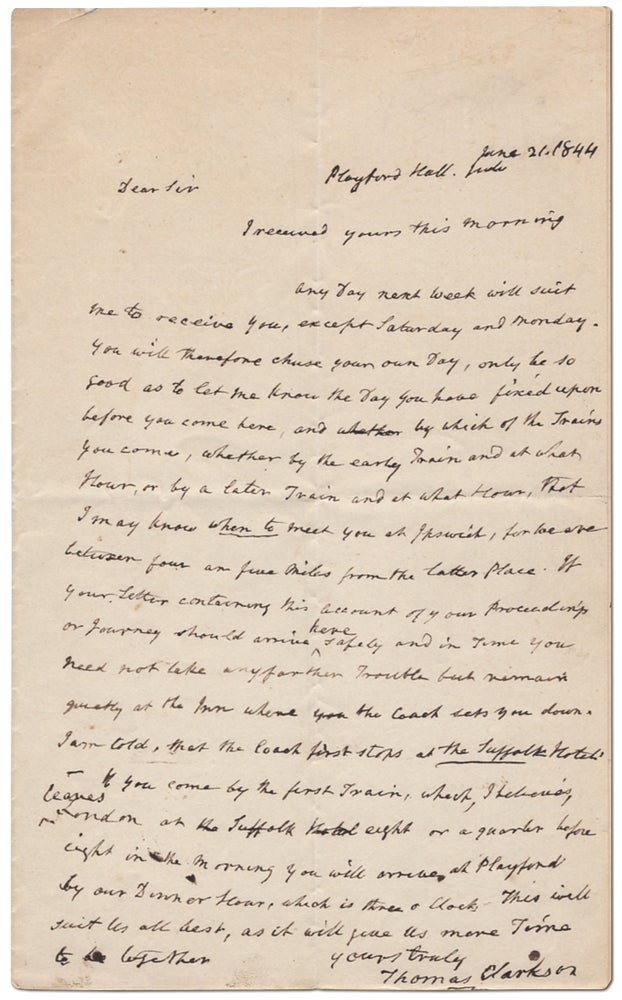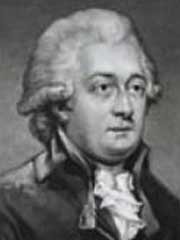1844.
Price: $600.00
Unbound. One page Autograph Letter Signed, dated 21 June 1844 to an unnamed recipient. Written on the first page of a four page leaf. Docketed on the the last leaf indicating it was received the same day (that's when mail was mail!) Paper has an 1842 watermark of paper maker "T. James". Old folds from mailing, very good or better. A routine, if very detailed letter written from Playford Hall in a minute but readable hand, about his correspondent's impending visit, inquiring what day he will come and noting that he needs to know in order to meet his train at Ipswich, as it is five miles from his house, giving details of when the trains arrive, and hoping he comes on the morning train: "If you come by the first train, which, I believe, leaves London at the Suffolk Hotel eight or a quarter before eight in the morning you will arrive at Playford by our Dinner Hour, which is three o clock. This will suit us all best, as it will leave us more time to be together." Clarkson was one of the most important and successful of the English abolitionists. While the contents of this letter, written two years before his death, seems unlikely to re-write history, it is a nice example of his autograph.
Item #438364



